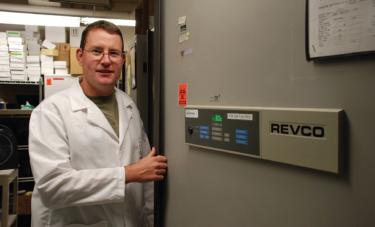View the Roster of AD Training Program Mentors 2022
About
The Alzheimer's Disease Training Program (ADTP), "Neurobehavior, Neuropathology, and Risk Factors in Alzheimer's Disease," focuses on translational research in Alzheimer's disease (AD) and related dementias. The objective of our research training program is to provide interdisciplinary training for basic science, clinical, and translational researchers so that they will be able to advance clinical hypotheses about the etiology, pathophysiology, and treatment of AD and related disorders.
The training program is the only formal program at the University of Washington focused on training investigators to carry out basic, clinical, and translational research in AD and related neurodegenerative disorders. Our program is supported by the rich and interactive research environment of the University of Washington and Veterans Affairs Puget Sound Health Care System, where a critical mass of faculty conduct research across the spectrum of Alzheimer's disease and related dementias.
The program supports training positions for 7 postdoctoral trainees. For postdoctoral trainees our goal is to have ~40% clinical (MD, MD/PhD, or PhD in Clinical Psychology) and ~60% research (PhD) postdoctoral fellows. Incoming MD candidates are expected to have completed a residency, usually in psychiatry, neurology, neuropathology, radiology, internal medicine, or geriatric medicine. Postdoctoral PhD candidates come from a broad range of disciplines, including clinical psychology, neuropsychology, biochemistry, genetics, neurobiology, and pharmacology. Basic science trainees typically join the program during their 1st year of postgraduate training and usually remain for three years. MD and clinician PhD fellows are expected to remain for a two year period, and will be strongly encouraged to remain for a third.
The program also supports training positions for 4 predoctoral candidates. Predoctoral trainees will be recruited from the following UW PhD programs: Genome Sciences, Molecular Basis of Disease, Molecular and Cellular Biology, Neurobiology and Behavior, and Pharmacology, and will join the ADTP program in their 2nd or 3rd year of graduate training. Special recruitment efforts will be made to include underserved minority trainees.


